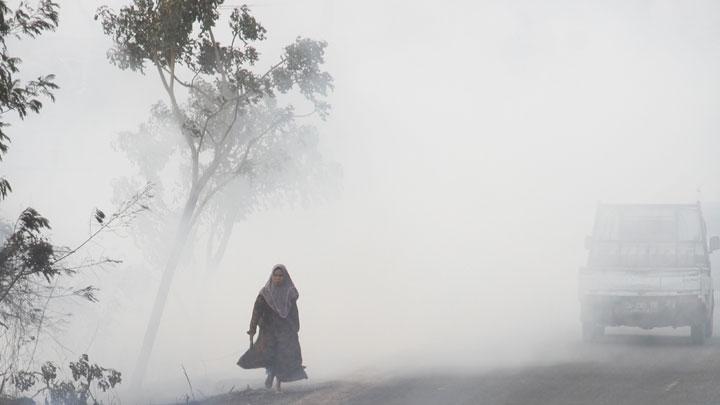Apriawan, a graduate alumnus of Gajahmada University through his research a few years ago was very relavan until now, he revealed that there are three environmental issues that have the potential to disrupt stability in southeast Asian countries.
According to him, environmental issues have undergone securitization in the Southeast Asian region. Three environmental issues are securitized, including atmospheric pollution and deforestation, the water source crisis, and the energy source crisis.
These environmental issues are potential conflicts that are predicted to affect the stability of the region.
The research was conducted using constructivism approaches and securitization concepts. These approaches and concepts explain how the responses and actions of state actors both individually and collectively are related to the issue of environmental security threats in the Southeast Asian region.
His research shows that there are two possible responses by countries in Southeast Asia to the issue.
Potential conflict
“The response from countries in the region has two possibilities: conflict or cooperation. The three environmental issues above have caused dispute or conflict between the affected countries” Urai Apriawan as reported in the ugm.ac.id website.
Apriawan added, related to the problem of smoke pollution and deforestation, there are tensions between Malaysia and Singapore and Indonesia as a pollutant producing country.
Then the issue of the water crisis occurred between Malaysia and Singapore in terms of the utilization of Johor Malaysia’s water resources, tensions also occurred between riparian countries and China in the utilization of water sources and energy sources in the Mekong river flow.
Other potential conflicts are the complex power in terms of energy utilization in the South China Sea and Gulf of Thailand, as well as the Ambalat Block border conflict between Indonesia and Malaysia.
Potential for cooperation
On the other hand, the response of state actors in environmental issues can also lead to cooperation, both bilaterally, multilaterally and regionally as at the ASEAN cooperation level.
The results revealed that the securitization of environmental issues can be seen from how countries in the region perceive the issue in an interaction on social structures in the region.
The key is in the country, because countries in the Southeast Asian region are seen as social actors who interact in terms of knowledge sharing, the meaning of material sources, and the practice of interaction between actors themselves.


